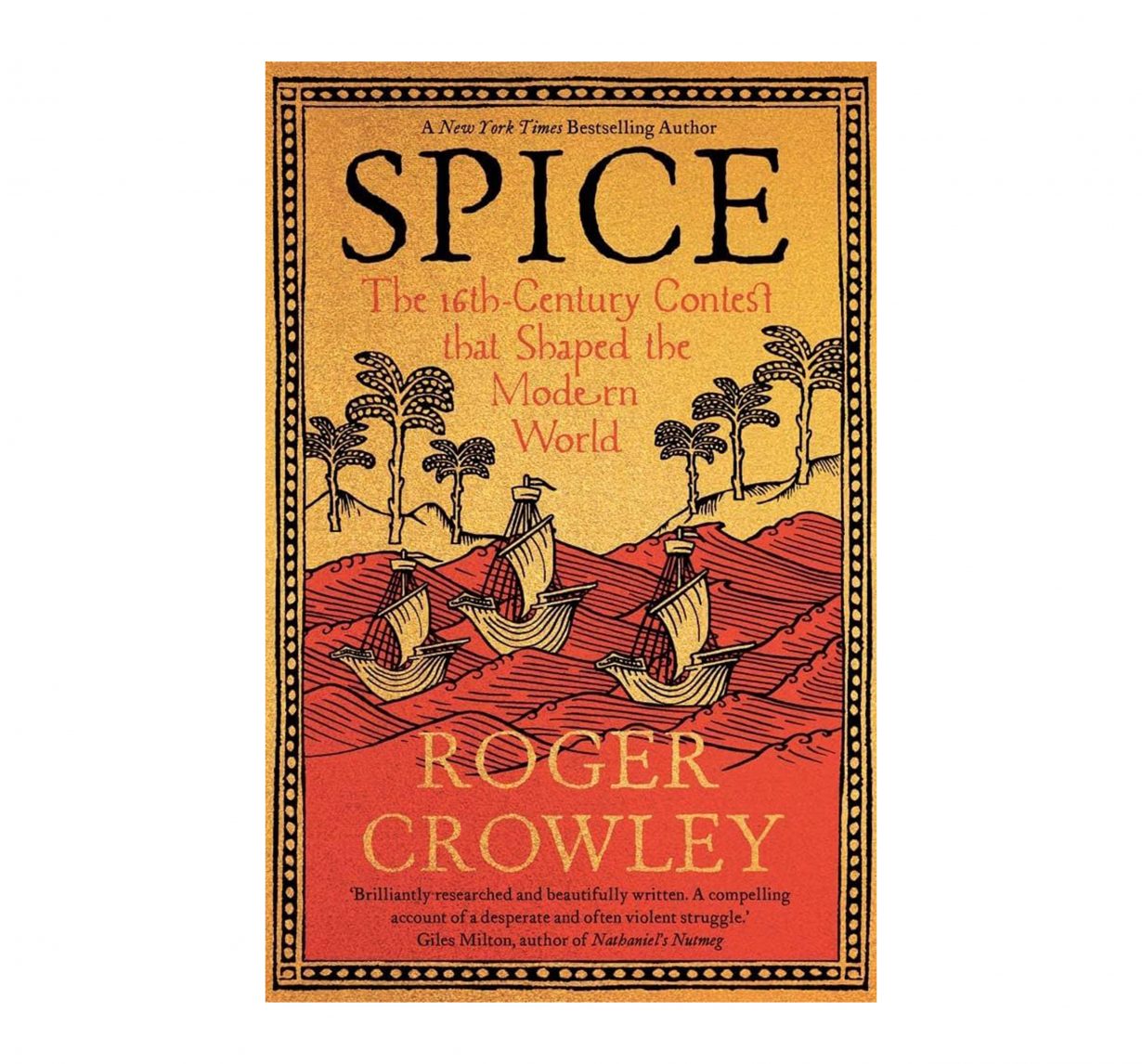An engaging account by Roger Crowley of the early trade wars between Spain and Portugal serves as a reminder of how money, greed and exploitation continues to shape the world

This is a history of the rivalry between Spain and Portugal. But it is set a world away from Europe (or ‘two monsoons and 9,000 miles’, as historian Roger Crowley puts it) in the archipelagos of Southeast Asia. Today we’d characterise that rivalry as ‘colonial’, but for a long time Europe preferred to frame it in terms of ‘science’ and ‘exploration’. The book focuses on a period of 60 years, from the Portuguese ‘discovery’ of the Maluku Islands (at that time the only known source for cloves, nutmeg and mace – goods that would have a 1,000 percent markup when sold in Europe) in 1511, to Spain’s capture of Manila in 1571. While the book provides plenty of opportunity for displays of bravery and stupidity, curiosity and greed, it’s also about how easily the human mind can deceive itself into thinking all of those things to be the same.
Such perverse logics punctuate Crowley’s narrative history. ‘Trade’, for Europeans, inevitably means conquest. As does ‘discovery’. Maps, when they are not state secrets, are designed to tell you that you can’t get to places (to protect the secret of where the ‘spice islands’ actually were, the Portuguese ignored the Pacific Ocean and surrounded the islands with imaginary reefs). The Treaty of Tordesillas (1494), which divided the world outside of Europe between the Iberian powers along a line drawn from pole to pole in one hemisphere, but was randomly interpreted in the other: at its most ludicrous, anything encountered while sailing west belonged to Spain; anything encountered while sailing east to Portugal. And while the kings of Spain and Portugal issued detailed edicts about what was supposed to be happening on the other side of the world, in practice they had neither the capability nor the willpower to micromanage their remote subjects. Indeed, in 1530, needing some cash and not needing the hassle, the Spanish king sold his ‘claim’ to the Maluku Islands to the king of Portugal, although it took some time for that news to reach baffled combatants on the ground.
Along the way, both sides engaged in ill-considered alliances with various local rulers that led to the Europeans’ often disastrous involvement in conflicts that they barely understood. In 1521 Ferdinand Magellan (a Portuguese in the employ of the king of Spain), having located the Pacific by circumnavigating South America, led 49 Spaniards dressed in full-plate armour in one such venture designed to destroy his ally’s arch-rival. He marched them through half a mile of tidal sea to face an army of 1,500, who constantly pelted their opponents’ unprotected legs with arrows, spears and hardened wood stakes. Needless to say, contemporary European accounts portrayed this mode of attack as a form of cheating; equally needless to say, the Europeans never made it out of the sea and Magellan was killed. But as we all know, despite the high attrition rate of Europeans exposed to disease, starvation or their own arrogance and stupidity, in the end it was the local peoples who generally got killed. Throughout, the author’s gripping narrative allows the boy’s-own-adventure aspect of contemporary European perspectives to jostle with the often absurd reality of what Magellan & co were actually up to, relying as it did on a volatile mixture of luck and violence.
Equally, Crowley never lets us forget what this was really about: money. While Europe may choose to remember Magellan as a great explorer, his contract, Crowley reminds us, granted him the right to exploit a certain proportion of any islands he ‘discovered’ on the way. Indeed, this period, he persuasively argues, marked the beginning point of globalisation and multinational corporations. Silver mined in the Bolivian Andes by tens of thousands of forced local labourers (thus guaranteeing its cheapness) was used to feed China’s endless demand for the metal (where it was worth twice its value anywhere else). In exchange, merchants could export an equal supply of manufactured goods made in China (during the sixteenth century, home to one quarter of the world’s population, so labour was cheap) that were highly valued in Europe. At the beginning of the next century the Dutch and British East India companies would be founded and the true pillaging of much of the rest of the non-European world would begin. It continues to this day. The past, it seems, isn’t a foreign country after all.
Spice: The 16th-Century Contest that Shaped the Modern World by Roger Crowley, Yale University Press, £20 (hardcover)